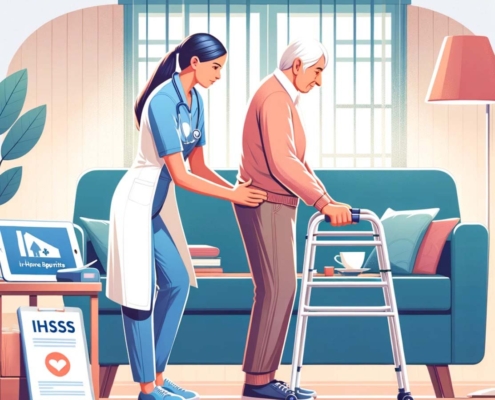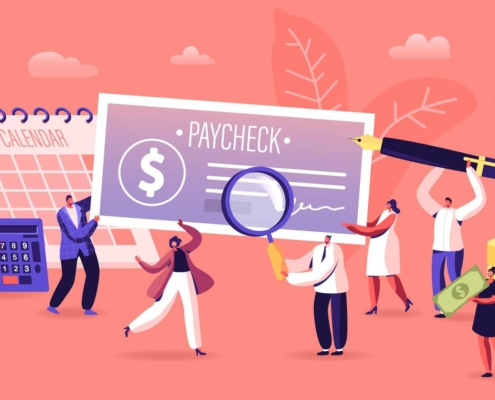Caregiver California Minimum Wage, Overtime Pay, Double Time Pay
As of 2023, caregivers in California are entitled to minimum wage of $15.50 per hour, $23.25 per hour overtime up to 12 hours, and $31 per hour over 12 hours. There are cities in California that require higher hourly wages.
Author: Brad Nakase, Attorney
Email | Call (888) 600-8654
As of January 2023, most 24-hour caregivers must be paid a minimum wage of $488.25 per day. The caregiver’s first nine hours of work can be paid at California’s minimum wage of $15.50, for $139.50. A domestic caregiver is entitled to overtime pay and all the other rights associated with employment in California.
In this article, our lawyer for caregivers and employers discusses the following:
Caregiver Minimum Wage
Caregivers in California must paid at least minimum wage for all time worked. California’s minimum wage for 2023 is $15.50/hour. However, many California cities and counties higher minimum wages. Also, if you hire through the IHSS program, there are separate minimum wage rates that apply to IHSS assistants.
Caregiver Overtime Pay
In California, when a caregiver works in excess of 8 hours up to 12 hours in a day, the overtime pay is 1.5X the regular hourly rate. Caregivers in California who work more than nine hours in a day or forty-five hours in a week, must be paid overtime wage at 1.5 times their regular hourly wage. Caregivers must be paid 1.5 times their regular rate if they work a 6th and/or 7th day in a row.
Caregiver Double Time Pay
When a caregiver worked 12 hours a day, workers are entitled to earn double time, which is 2 times their regular rate of pay. California caregiver must be paid double-time for hours over 9 when working six and seven days straight. Double the caregiver’s regular rate of pay for all hours worked in excess of 12 hours in any workday and for all hours worked in excess of eight on the seventh consecutive day of work in a workweek. See Cal. Labor Code § 510; Wage Order 15, § 3(A)-(C).
Caregiver Time Off Law
Live-in caregivers in California are entitled to 12 consecutive time off each day. Also, caregivers must be given 24 hours time off or one day time off after every 5 days of work. See Industrial Welfare Commission Wage Order 15-2001 (Cal. Code Regs § 11050).
Caregiver Rest and Meal Breaks Law
California live-in caregivers must be given non-consecutive 3 hours of off-duty break time during a 12-hour shift. Non-live-in caregivers must be given unpaid 30-minute, off-duty meal break for shifts over 5 hours, which must begin before the end of the 5th hour of work (Cal. Labor Code § 226.7; Wage Order 15, §11).Furthermore, when a caregiver works over 10 hours, a second unpaid, 30-minute meal break must be given.
Have a quick question? We answered nearly 2000 FAQs.
See all blogs: Business | Corporate | Employment Law
Most recent blogs:
Contact our attorney.
































